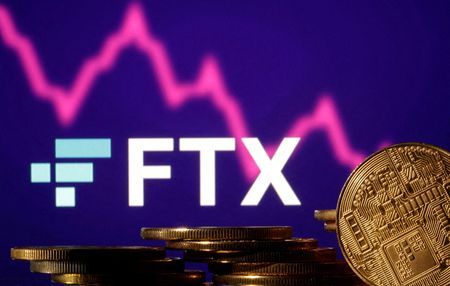
By Dietrich Knauth
(Reuters) – The U.S. Department of Justice’s bankruptcy watchdog on Thursday appointed a committee to represent FTX accountholders and other junior creditors in the collapsed crypto exchange’s bankruptcy case.
The committee – which includes a mix of individual account holders, investment funds, and an affiliate of U.S. crypto firm Genesis – will represent the interests of all unsecured creditors, who are among the last to be paid in a typical bankruptcy.
The nine-member committee includes three individual creditors, Genesis affiliate GGC International Ltd, crypto trader Wintermute Asia PTE, Coincident Capital International, Pulsar Global Ltd, Octopus Information Ltd and Wincent Investment Fund.
FTX filed for bankruptcy protection in Delaware in November after traders pulled $6 billion from the platform in three days and rival exchange Binance abandoned a rescue deal. The collapse has left an estimated 1 million creditors facing losses totaling billions of dollars.
Crypto firms that went bankrupt earlier this year, including Voyager Digital and Celsius Network, have classified most of their customers, particularly those with interest-bearing accounts, as unsecured creditors.
Unsecured debts, such as credit card or medical bills, do not grant lenders any specific collateral rights. Secured debt, like a mortgage or car loan, is backed by specific collateral that may be claimed by a lender if the debt goes unpaid.
U.S. Bankruptcy Judge John Dorsey, who is overseeing FTX’s Chapter 11 case, said during a Wednesday court hearing that he expects the creditors’ committee to weigh in on issues related to customer privacy at a hearing scheduled in early January.
FTX has argued that customer names should be kept secret to protect them from scams and to preserve the business value of FTX’s customer list for potential buyers.
Creditor names, contact information, and the amount they are owed are treated as public information in most bankruptcy cases, and both the Justice Department and a group of media organizations have tried to block FTX from straying too far from bankruptcy’s transparency requirements.
(Reporting by Dietrich Knauth, Editing by Alexia Garamfalvi and Deepa Babington)

